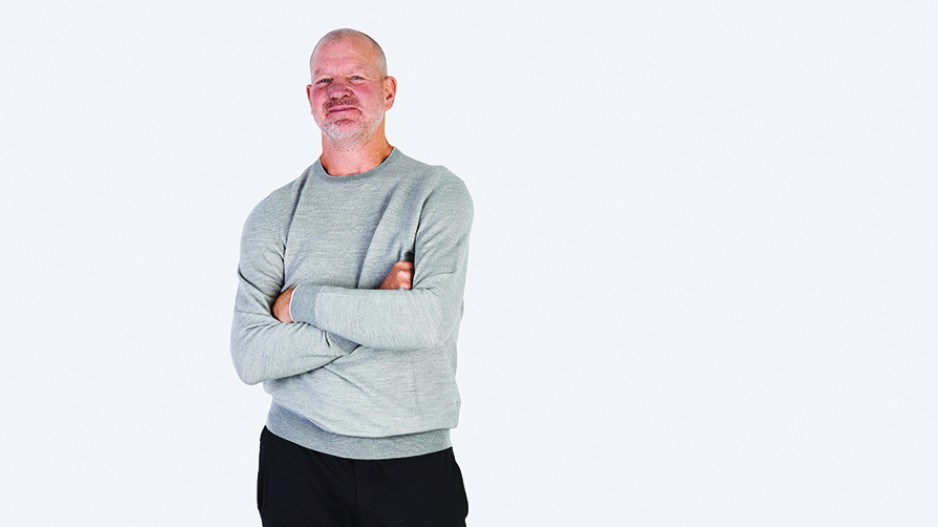Part of a series on the next steps for B.C. businesses across a wide range of sectors as the province edges closer to the easing of COVID-19 safety measures
Retailers in B.C. face major changes to the shopping experience they offer when fashion boutiques reopen after the COVID-19 pandemic eases.
Many fashion retailers have closed partly because customers want to try on clothing, which poses the threat of infected garments. Others closed because they doubted they could remain profitable if they limited the number of people in their stores.
Closed fitting rooms, extending the time in which customers can return goods and limiting customers is a strategy that Fields CEO Jason McDougall said he has pursued in his 64 stores’ fashion departments. He also sells food and other essentials.
Whether B.C. companies such as Lululemon Athletica Inc. (Nasdaq:LULU) or Aritzia Inc. (TSX:ATZ) can keep their bricks-and-mortar stores open while prohibiting shoppers from trying on clothes remains to be seen.
“Change rooms are going to be essential,” said Lululemon founder Chip Wilson. “Women are wearing different types of clothing, and fit and look is so critical.”
Wilson added that he expects the COVID-19 virus to “ping-pong” around the world for years and that people younger than 40 will want to get on with their lives, and that will include shopping.
Not allowing returns would deter sales because there would be such a high cost and risk to the consumer, he said.
Boys’ Co. owner David Goldman said he didn’t know if it would be viable to operate without allowing customers to try on clothing.
He has a flexible return policy and does not want to tell customers that they can’t try goods on and can’t return them. He did not, however, rule out that possibility.
“I just don’t know what the answer is, so I have written to my suppliers,” he said.
Both Goldman and McDougall have asked landlords for patience during the pandemic.
McDougall believes that his 31 stores in B.C. will survive the downturn.
Predictions differ on when non-essential retailers will open but that decision will be up to corporate owners and not the government because even though many non-essential retailers have closed they are allowed to stay open.
The catch is that retailers must “adapt their services and workplaces to the orders and recommendations of [Provincial Health Officer Bonnie Henry], according to the B.C. government.
Retail Insider Media owner Craig Patterson said he foresees those stores reopening in early summer, but the fear of catching COVID-19 may keep customers out.
“Look at what’s happening in China right now,” Patterson said. “They’ve opened up all kinds of stores but the foot traffic is just not there. A lot of people are hoarding money.”
High-end retailers on Vancouver’s posh Alberni Street may be particularly hard hit because they rely on tourist spending, and non-essential international travel appears to be months away.
“There will be a significant decrease in demand for fashion clothing,” Patterson said. “How many formal events will women go to where they have to be seen? How many ball gowns are you going to sell?”
Joseph Calvano agreed.
He founded Dollar Giant in 2001, sold the company to Dollar Tree in 2010 for $62 million, and was president of Dollar Tree Canada until he retired in 2018.
“I don’t see fashion being a priority from a shopping point of view for many people,” he said. “The majority of stores in the fashion business will be in for a rough ride for the next 12 months.”
Calvano said the dollar-store sector will flourish as people seek bargains and necessities.
Department stores and fashion retailers might decide to reopen and conform to all necessary official provincial health requirements within three to six months, Calvano suggested.
“I don’t see our economy being closed for a year,” he said. “There’s no way we can sustain it. There’s no possible way in the world that any government could sustain closure for that time. At some point, you ask, ‘What is the risk versus the reward?” •
This story is part of a series on the next steps for B.C. businesses across a wide range of sectors as the province edges closer to the easing of COVID-19 safety measures. Check out all previous stories in this series, and stay tuned for further stories being published throughout this week.
Previous stories in the series:
B.C.’s road to recovery: Restaurant reopenings could start in May




